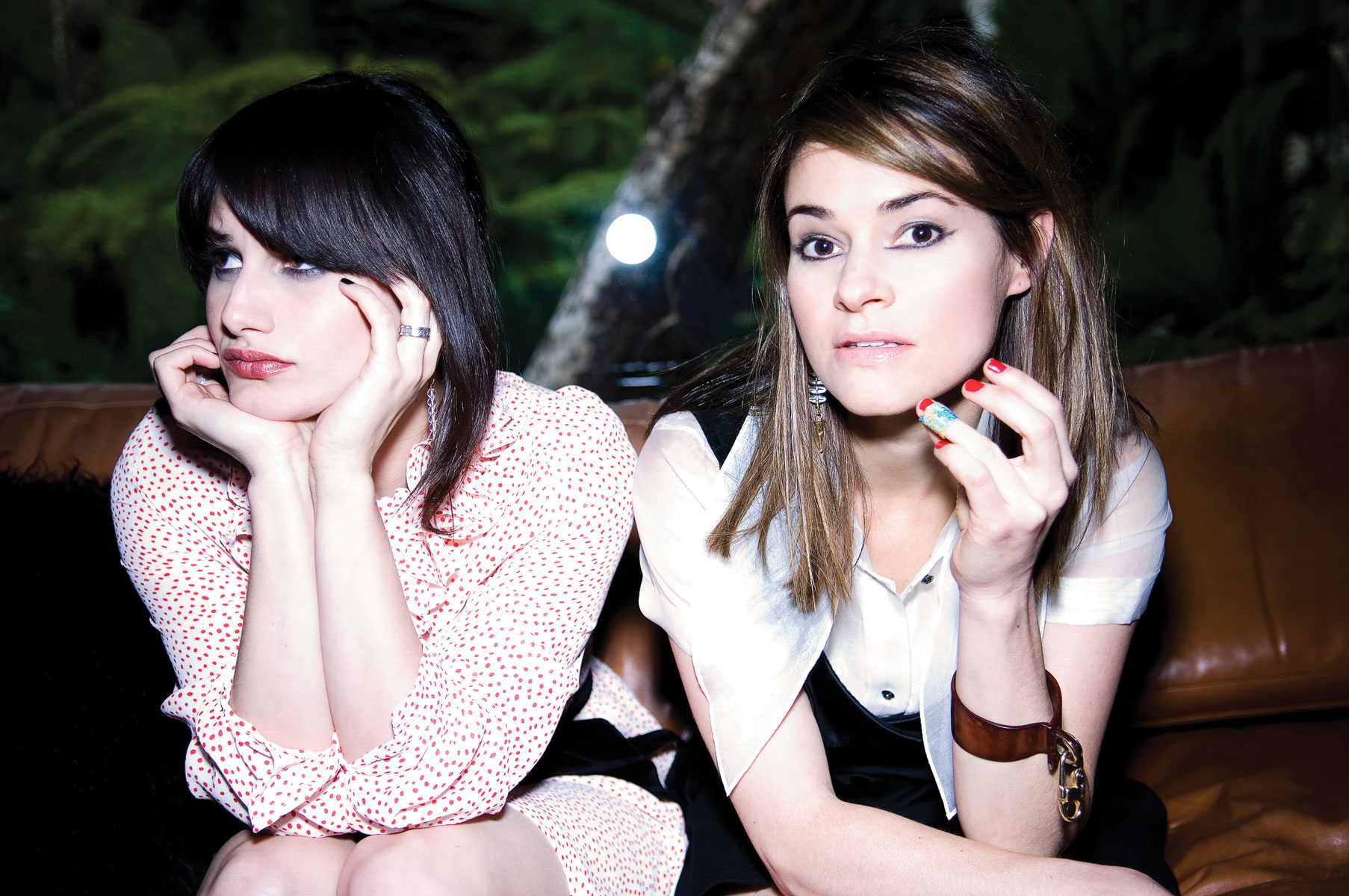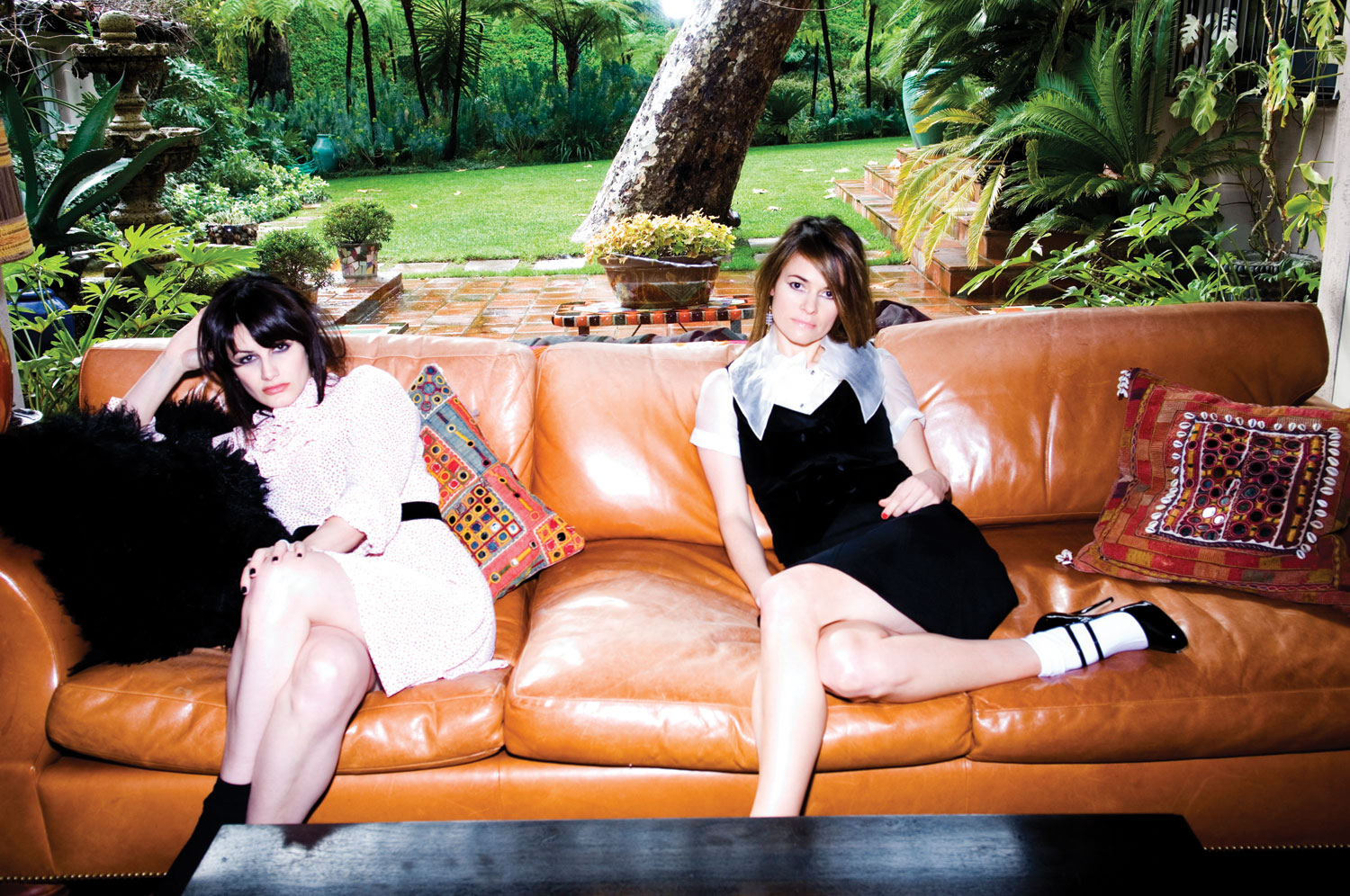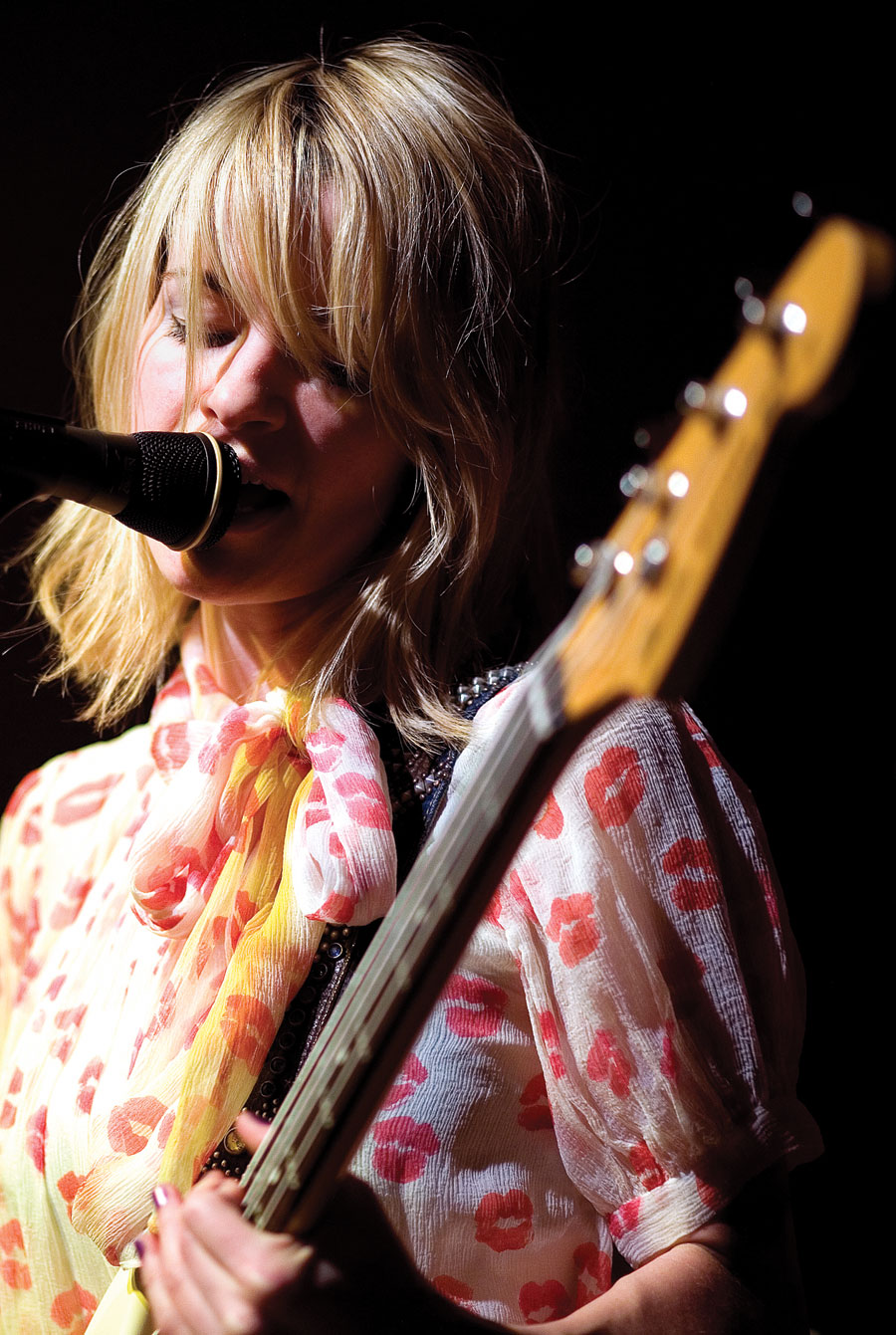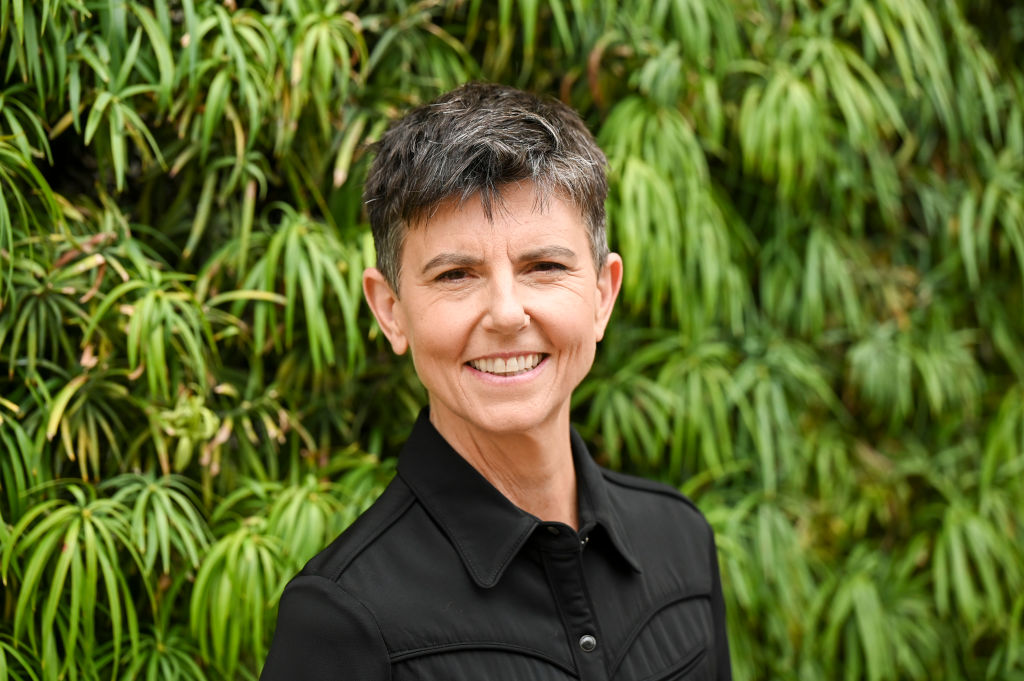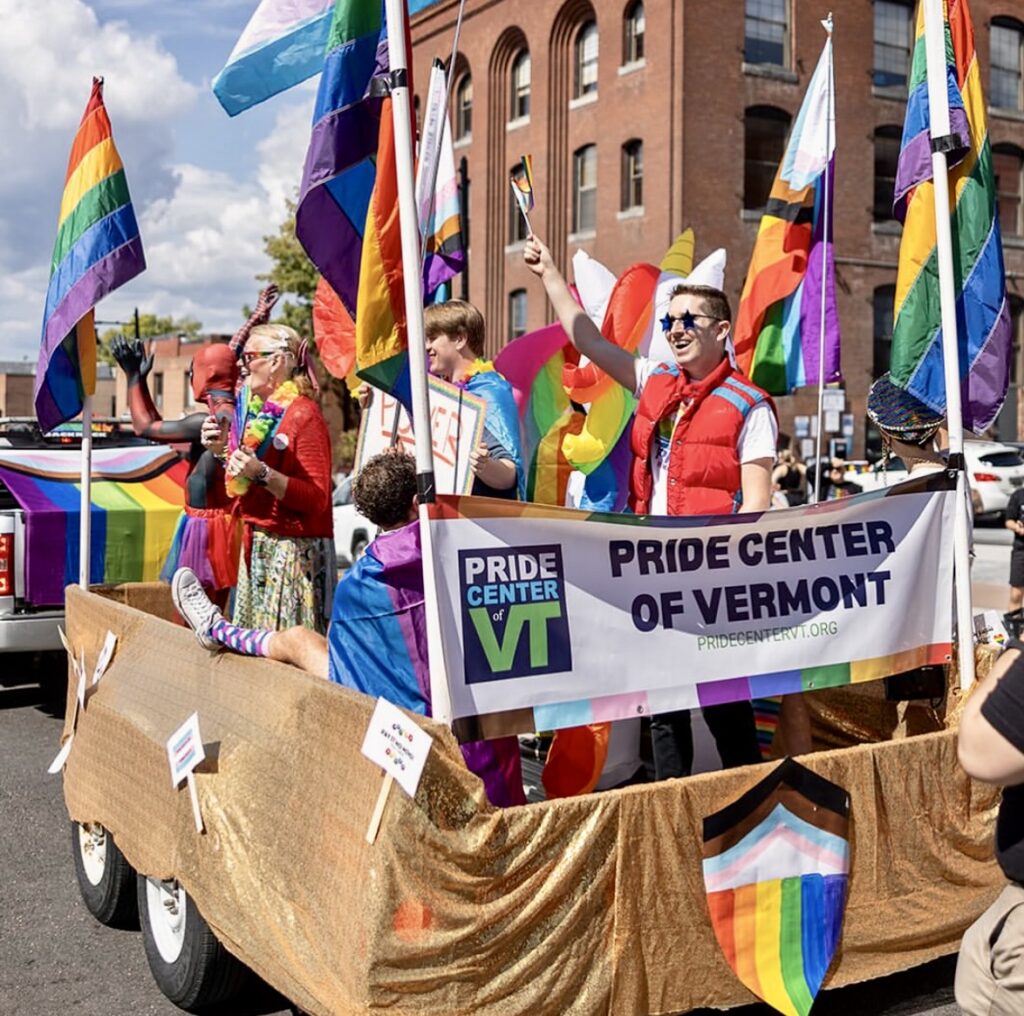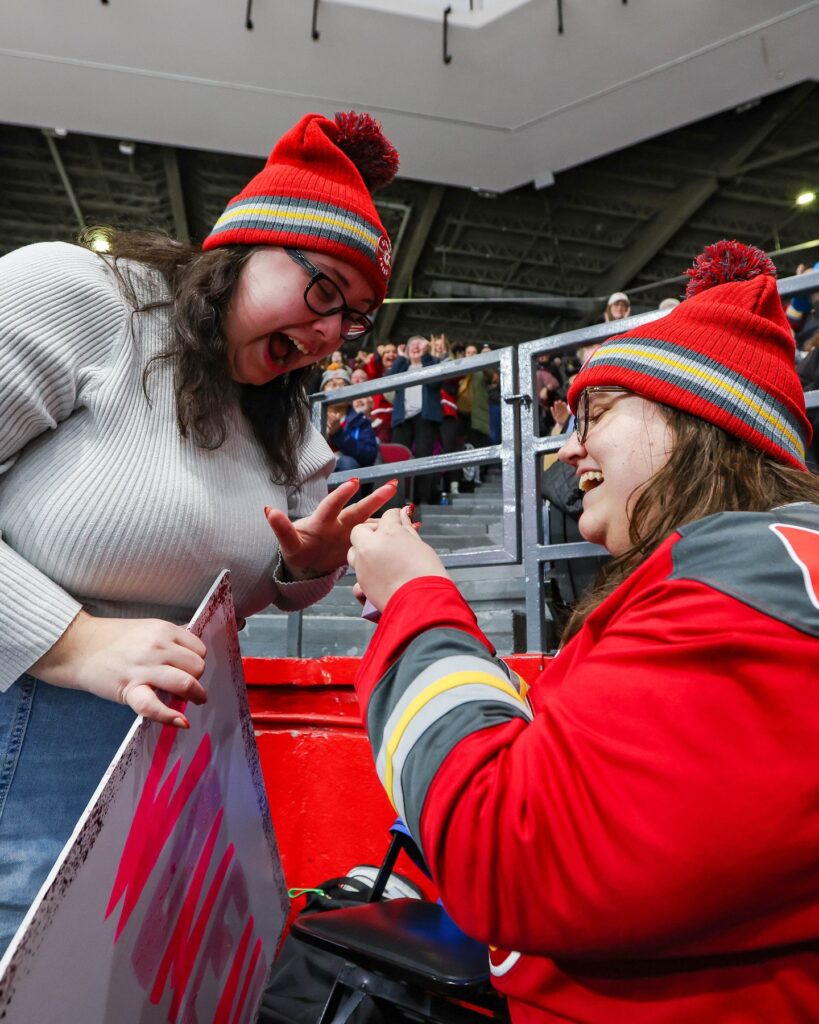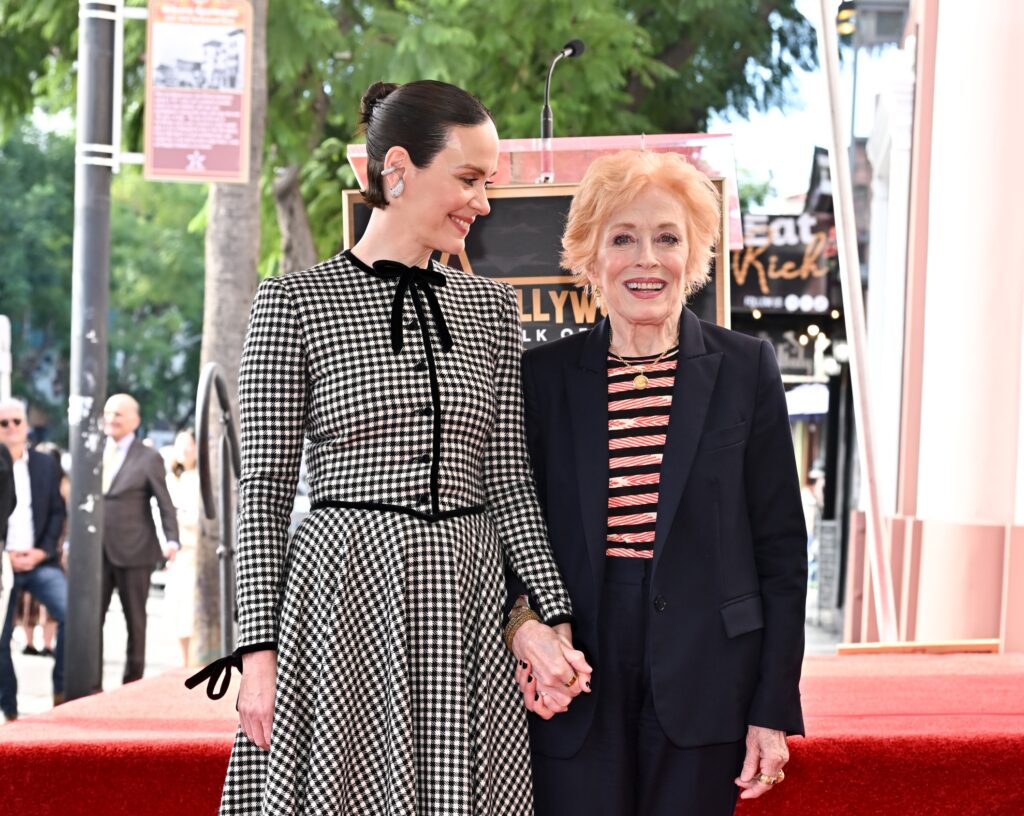The U Word
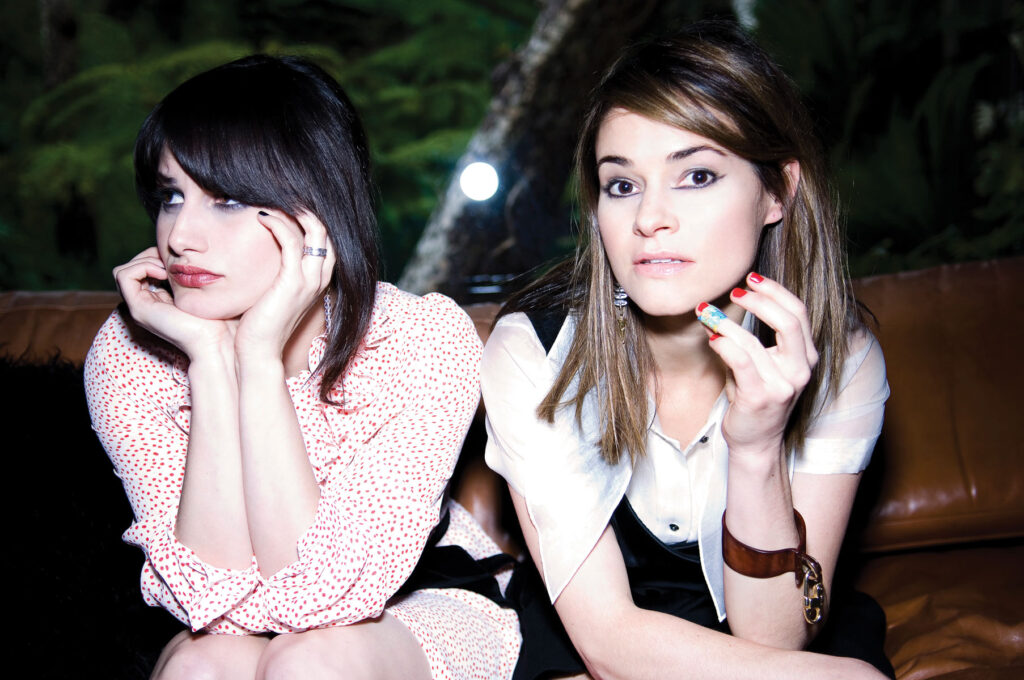
Camila Grey and Leisha Hailey talk with GO about their debut album and the meteoric rise of Uh Huh Her.
In January 2007, actor and musician Leisha Hailey decided that she had been out of the music business for too long. So she called up her casual acquaintance, multi-instrumentalist, singer and producer Camila Grey, and the electro-pop duo Uh Huh Her was born. Six months later, the band released the EP I See Red, and this month their debut LP Common Reaction will be released on Nettwerk Records.
Hailey and Grey spoke with GO and shared their unconventional success story and revealed what lies ahead.
You’ve both had success in the music industry prior to Uh Huh Her. How have your musical backgrounds led you to this project?
Grey: For the most part I’ve worked in a range of different genres—a lot of session work with Kelly Osborne, Dr. Dre, Busta Rhymes. I’ve always kind of meandered through the whole rock thing, and through every experience I’ve had with other people I’ve solidified my own voice. But I’m truly a synth lover. With all those bands I’d do my part and all that, but I always wanted to make a synth-based, [somewhat] ‘80s-influenced record. All of my heroes were British bands from the ‘80s, so that’s kind of been in my blood. I don’t think the experiences before this band really can compare—they just solidified my need to do this, because no one else was doing it that I was working with.
Hailey: I started a band [the Murmurs] back in 1990 with my friend Heather [Grody] and we played in places like the East Village in New York for about three years, in the subways—it was just sort of our survival mechanism. Eventually record people started showing up, which we never planned, and we ended up getting signed to MCA Records. We pretty much had a ten-year music career that was never my intention.
How did you find each other and what made you decide to collaborate?
H: We met a couple of times in the two years before I called her to start the band, just randomly at parties, very casual meetings. But when I really wanted to start looking for a bandmate, I had always heard she went to Berkeley and had played with some really cool people, so I pretty much just called her out of the blue one day and said “Hey, I’m Leisha, we don’t really know each other, but do you want to start a band?”
G: That’s kind of how it went—it was that simple. I was like, “Yeah, I guess, why don’t you come over and hang out?” and we played mix tapes for each other.
How does your touring schedule fit into to Leisha’s shooting schedule for The L Word, and vice versa? What challenges has her acting career presented for the band?
G: Essentially we can’t ever really do summer festivals, or any kind of summer tour because that’s when she’s shooting. And that’s my favorite thing to do—play summer festivals [laughs]. So that’s kind of a problem, but we obviously do make it work the best we can. We tend to do one-off shows when we can while she’s shooting. I commute up there [to Vancouver] and she flies back down [to L.A.] whenever she can. We make it work.
H: The L Word is in its last season, so when that wraps up in October I’m pretty much done with that. It’s been pretty easy to schedule around it; we know in advance when the shooting is. I think the real challenge will be next year when, you know, I don’t want to give up my acting career and I’ll be going to auditions. So that will really be the harder thing to work around because I don’t know what next year will bring. But I’m a chameleon and I work really hard with what ever I’m doing at the moment.
What about the flip-side of that coin? How has Leisha’s television exposure presented new opportunities for the band?
G: Certainly our fan base is exponentially bigger than it would be if we had just started out like any other band. It’s been a huge thing because it’s skyrocketed us to having to play and really show up for so many people. For me that’s good, because I do best under pressure. I’ve been in bands and been on the road and done the whole “year on the road playing for nobody” thing, and then I’ve done quite the opposite and played on the MTV Movie Awards and for a ton of people, so this is kind of a happy medium, where we’re not playing for nobody and we have an audience, and I’m really appreciative of it.
H: It’s definitely helped launch an audience—people found the band because of the show, which really surprised me. But at the moment that’s really it—which isn’t small, of course.
It’s always inspiring to see strong, female musicians at the top of their game. What challenges have you faced as women in a male-dominated music industry?
H: We both come from the same place where we don’t think of our music coming from the fact that we’re women. I don’t like to look at things like that, and as far as I know from the outside it hasn’t really had an effect. Definitely we’re in charge of it—that’s what’s been really positive. We’re both pretty good businesswomen. I like to have control over what I do.
G: I never really think of it like that, like it’s a woman-fronted band and it’s going to be challenging. I’ve always been a woman in this industry and I’ve done pretty well, and I just continue to think about the music only and not about my place in it as a woman. I’m not trying to be naïve or anything, because I know the issues exist, but at the same time I just try to plow through and not pay attention to that.
Who are your main creative influences and industry role models?
G: Honestly, anyone who’s been in this industry and had a long career I respect, because it’s such a difficult one. It’s hard to evolve and progress and have your fans grow with you, so to me that’s like the ultimate thing. I think people like Annie Lennox, Björk, David Bowie, who’ve consistently stayed with their vision and been weird and evolved and are still here doing their thing, to me that’s the most amazing thing ever. I also love classical music, it’s one of my favorite things, so people like Hans Zimmer, whom I’ve worked with and I absolutely respect.
H: Musically, Sinéad O’Connor would be one, Lucinda Williams, Depeche Mode and Madonna.
Uh Huh Her is a relatively new band. How have you managed to be so productive in so little time?
G: I’m extremely prolific, I like to just write and write and write. In this situation with Leisha being gone so much it’s tricky. I obviously don’t want to write something and not have her in on it, so it’s kind of hard to balance. We wrote these songs so quickly because we were on the road and then they were like “Okay, make the record,” so it was a really fast turnaround.
H: The year that we wrote the album was really hectic, so if I was home for three weeks, we would use that time to write every day, and when we were apart one of us was always flying to the other one. It was a little weird because the writing wasn’t totally cohesive. But we did have a lot of material by the time we got into the studio, probably another nine or ten songs that were halfway done, or all the way done without lyrics, they just needed more time. So that was a little frustrating because there were a lot of those that we liked that we just didn’t have the time to finish. But it’s good, we have them on the back burner and we won’t forget about them.
Was there any particular theme or set of themes that you wanted Common Reaction to communicate?
H: It was pretty much song by song, it’s not like we went out and said we want to write an album about this or that. I guess there was an overall theme, people have told us it’s definitely a lot about relationships and love, but it wasn’t on purpose.
G: It was very stream-of-consciousness the way it was done; because we had to do it so quickly, there was no time to really conceptualize this record, unfortunately. But maybe that was a good thing, because I really tend to overthink everything. I’m a composer first and lyricist last, and maybe that comes through, who knows, but the words and the thoughts came as quickly as the music. We’d cut a vocal and I’d kind of eke some words out and then we’d say, okay, let’s sing about that.
What are your roles in the writing process?
G: I’m a mad scientist on the computer, so I’ll say, “What do you think about this?” and then she’ll come in an add something, or she’ll add a bass line that she wants to do. There are so many different ways that we go about it.
H: It kind of happens every which way, we’ve done it where Cam will work on a track that doesn’t have a melody or lyrics and bring it to me—I tend to write on the guitar, because that’s just what I know, I’m not a big techie. I don’t like starting a song by finding a drum beat when I’m alone. My brain just doesn’t work that way. I like doing that together because she’s pushing the buttons. And these things definitely define our sound—if you listen to my music alone, or to Cam’s music alone, they’re very different, and neither sounds like our music together.
How did you find your way to Nettwerk Records? What makes them a good fit for your music?
G: I’d been with Nettwerk Management as a solo artist, so when Leisha came into the picture and the band was a band, I said let’s go to them because they’re really good at developing artists, which not a lot of people are anymore. And the record label because it’s under the same kind of umbrella, it seemed like they were really the only people who didn’t want to change us and wanted to let us do our thing and not start meddling. Which other people like to do. So to me it was a great fit. We’re into it for three albums. It’s a good deal.
H: We met with some other major labels, but Nettwerk definitely felt like the right home because they had a vested interest in our band, and we knew them, and it’s not like we were going to be signing a big 360 deal. It just felt right.
With two more albums on your contract, have you started working on the next one?
H: We haven’t yet—we’ve really been working on our live show. We’re gonna leave on tour again in the fall and we really want to get that better and better and better. But I think in the next few months we might spend a while together and write some more. I don’t like to take too much time off while you’re selling a record, so yeah, we do have to think about another one.
Can you share some of your plans for promoting the album? Is there an upcoming tour in the works?
G: We’re booking a tour for the U.S. again. We did half of it a few months ago but we didn’t do the full shebang. In mid-October we’ll hit the road for a tour in the U.S. and Canada, and then we’ll do some one-off shows in Europe—we’ll do ten or twelve shows there in mid-November into December.
H: We’ll also do sort of your run-of-the-mill press tour, with radio and T.V. But that will be good because the record got pushed [from a May release to August], so we’ll get to do what we wouldn’t have had time for. I think the label was trying to push it out too quickly, and then everyone realized that.
Uh Huh Her obviously has a strong following in the LGBT community. How has this influenced your body of work?
G: I come from such an “I’m a musician” background and Leisha comes from such the celebrity world. For me it’s a little difficult to go into it with the focus not being on the music always—I think that’s the most challenging thing. But I embrace everything and everyone, and I think the community’s amazing and I love to have the support. I don’t really see any challenges—just the possibilities.
H: To me it’s all positive. I think the fact that we have an audience at all is pretty incredible. We’re super grateful for all the girls who have been coming out and supporting us. Getting our music to a broader audience is a challenge that’s up to the label, to get the music out more to the mainstream. But it’s only building on top of our core audience. I don’t see negatives about it at all.
Leisha, if Uh Huh her reached a point where it required a full-time commitment, how do you think you would you balance that with your acting career?
H: I absolutely do give it my full commitment; it’s something I love and I’m dedicated to giving it my full time and energy. If that were to happen, of course I’d be there. That is totally my plan.
For tour dates, music downloads, videos and much more, check out uhhuhher.com and myspace.com/uhhuhhermusic.



